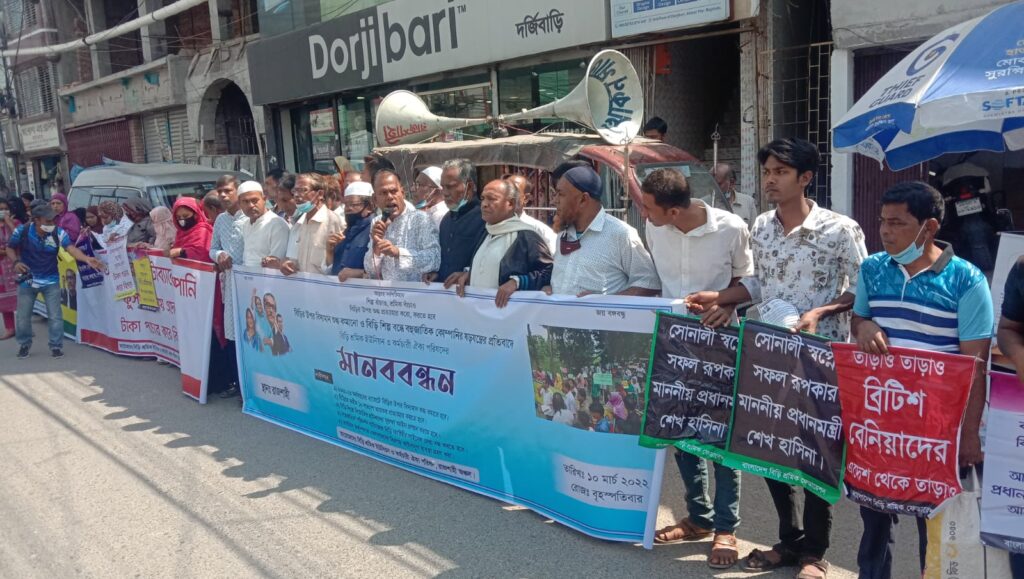ABM Zubair
In Bangladesh, the bidi industry has been capitalising on the financial vulnerabilities of its workers to shield itself against any taxation or tobacco control measures. The Bidi industry has been criticized for abusing human rights by offering extremely low wages, the average in Bangladesh being US$ 0.77-1.57 per day according to a 2019 study. Although the industry has ranked fourth in the Bangladeshi government’s list of 38 hazardous work environments not suitable for children, at least half of its labour force are aged between 4-14 years. It is therefore surprising when bidi workers all over the country take to the streets every year, in the months preceding the national budget, raising slogans not for humane wages, benefits and safe work environments, but for tax reduction on bidi in the national budget. Such protests of bidi industry workers have been going on for years. However, a qualitative study, conducted by Bangladesh-based research and advocacy organisation PROGGA between December 2020 and March 2021, with support from the U.S. Advocacy group, the Campaign for Tobacco Free Kids (CTFK), has revealed that these nationwide protests are being sponsored and actively organised by a handful of influential bidi companies who coerce workers and other small bidi factories into participating.
The study selected four districts of Bangladesh, which took into consideration the concentration of bidi factories, and the frequency and intensity of bidi workers’ protests. A total of 92 participants were purposively selected to take part in interviews and focus groups. They were bidi workers, labour leaders and representatives of local civil society, i.e. journalists, activists, teachers, and writers. The participants exposed that the bidi workers’ movement is carefully staged by the factory owners, who manipulate the workers by saying that, any hike in bidi prices and taxation would result in shutdown of factories and loss of livelihoods. Factory owners also threaten to revoke workers’ cards or temporarily shut down factories, causing sudden loss of wages. The study found the leading bidi company of the country, Akiz Bidi Company, to be the primary organiser behind these protests but also found evidence of organising roles of three other local companies, Aziz Bidi and Maya Bidi (Rangpur) and Bangla Bidi (Pabna). Factory owners often bring workers to the capital from distant parts of the country to draw national attention before the budget. The companies cover the costs of travel, food and other expenses. In such gatherings, workers are never given any opportunity to speak for themselves. Only the company managers, agents and some so-called labour leaders make statements. Some organisations that claim to represent workers’ interest are front groups for factory owners.

Such protests, orchestrated by corporate actors, have been somewhat successful. For example, in the final budget of 2019-20, the supplementary duty on non-filtered bidi was raised to 35 percent from 30 percent. However, due to protests from bidi factory owners and workers, on 13 October 2019, the National Board of Revenue (NBR) reinstated the previous 30 percent duty on non-filtered bidi.
Factory owners also promise that if the government reduces taxes on bidi, the wages of workers will be raised from the surplus money. However, evidence gathered suggests that between 2018 and 2021, bidi workers saw only a meagre increase of BDT 6 (US$ 0.071) in their wages for producing 1,000 bidi sticks. In the meantime, for the same number of sticks, factory owners saw an increase of BDT 118.8 (US$ 1.40).
It was also revealed that bidi workers are not allowed to unionize and any attempt to do so would result in redundancies.
Previous research has refuted the bidi industry’s claims that a tax increase would cause millions to lose jobs. For example, in 2017, an organization called Research and Development Collective (RDC) claimed that increasing taxes would render 1.5-2 million workers jobless. In 2014, RDC claimed the number to be 2.5 million. In 2018, the Bidi Workers Federation claimed the number of bidi workers was 2 million. However, a 2019 study conducted by the country’s apex revenue body NBR found that the total number of full-time equivalent bidi workers stands at 46,916 which is only 0.074 percent of total labour force of Bangladesh (63.5 million), indicating that the size of the workforce has been exaggerated by the industry and its front organizations to manipulate policymakers.
PROGGA’s study makes a number of recommendations that include increasing prices and taxes on bidis to discourage consumption and utilizing some of the additional funds to generate alternative livelihood for bidi workers. The findings also suggest that authorities need to apply more stringent measures to ensure that the bidi industry is taxed effectively and ends exploitative child labour. In addition, the study emphasizes encouraging bidi factory owners to switch to other businesses and employments through loans and other assistance.
ABM Zubair is Executive Director of PROGGA, and the Director of the Center for Research and Advocacy to Fight Tobacco (CRAFT) in Bangladesh.